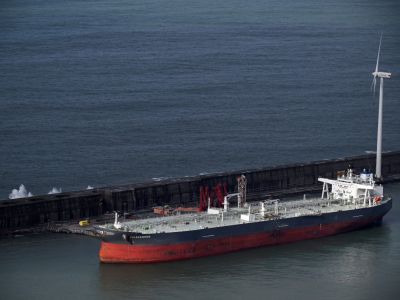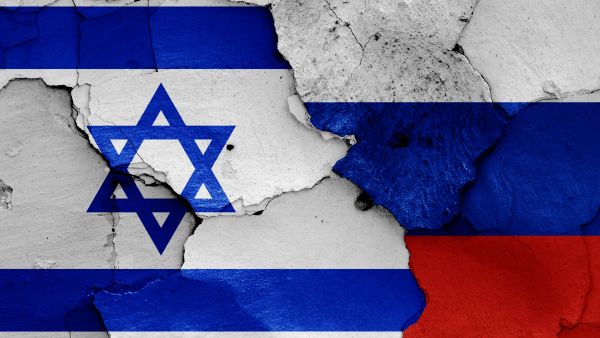The Soviet Union supported the Jewish state and recognized Israel in May 1948. After cold relations during the Cold War, diplomatic relations between the two sides were restored in 1991.
In the 1990s, Israel and Russia experienced a growing relationship. In the late 1990s, their diplomatic and economic relations became stronger. With the presence of leaders such as Ariel Sharon and Benjamin Netanyahu, Russian President Vladimir Putin increased the dimensions of relations.
Discussion between Isaac Herzog /Vladimir Putin Israel wants to prevent the closure of the Jewish Agency
— Sophie Maupu - World Marceau (FOLLOW BACK ?%) (@666Lucifergod) August 16, 2022
Vladimir he is the calmest of diplomats
he will yield to the request of Israël
but in a respect of the Jews for the Russians
after all there are Jewish mercenaries in Ukraine pic.twitter.com/dmlbn9JYr3
After the visit of Vladimir Putin to Israel in April 2005 (the first visit of the head of the Russian government), official meetings, the opening of the Consulate General of Israel in St. Petersburg in 2011, and the opening of the Consulate General of Russia in Haifa was an important part of the development of relations.
In fact, in the past decade, Israel-Russia relations have been on the rise, with more than 10 meetings between Putin and Netanyahu, the establishment of strategic dialogues, consultations at the ministry and government and parliamentary levels, national security talks, the development of economic relations, and the signing of memorandums of understanding and agreements of collaborations, etc., added to the dimensions of the relationship between the two actors.
Blog: #Russia Jews head for Israel as Kremlin targets emigration group https://t.co/5EtxAf2t6e
— Middle East Monitor (@MiddleEastMnt) August 22, 2022
Russia and Israel highlighted the 30th anniversary of the restoration of relations in 2021. But it seems that relations have been facing new and important political, security and geopolitical challenges and obstacles in the past year.
The crisis in Ukraine can be considered as an important and starting point for the beginning of tension and conflict between Russia and Israel. Israel's positive vote against Moscow in the Human Rights Council, joining the resolution of 141 countries condemning the war and the immediate withdrawal of Russian forces, and accusing Russia of "war crimes" in Ukraine was part of the Jewish government's approach to the Ukraine crisis.
In this context, Israel condemned Russia's invasion of Ukraine, and the Russian ambassador was summoned to the Ministry of Foreign Affairs regarding the anti-Israel approach. In the meantime, it should be noted that the former Prime Minister Naftali Bennett emphasized Israel's strong relations with both sides of the conflict, and even tried to act as a mediator between Kyiv and Moscow. But the current Prime Minister, Yair Lapid, has shown a tougher approach.
Since Russia's war with Ukraine, there has been a huge "braindrain" as Russians are desperate to leave the country. The Government is worried. It's no coincidence, that the Jewish Agency, the major facilitator for Jewish emigration to Israel, is being threatened of shutting down pic.twitter.com/ZgoU3h5XjE
— Conf European Rabbis (@europeanrabbis) August 22, 2022
In fact, although Israeli authorities have tried to refrain from participating in economic sanctions against Russia and refused to send military equipment such as "Iron Dome" to the Ukrainians, But, Moscow's approach and words of leaders such as Sergey Lavrov about Hitler's "Jewish origin" , strained relations.
Also, despite Putin's apology to Israel, the disagreements between the two sides increased, and Moscow considered Israel's position on the events in Ukraine to be anti-Russian, completely unconstructive, and biased. In this context, Russia has somehow supported Palestine by reactions such as emphasizing that the continuation of occupation and continuous annexation of Palestinian lands is illegal, Israel’s efforts to divert the attention of the international community from the Palestine’s cause, and violating resolutions by it.
It should also be noted that despite Israel's somewhat cautious reaction in the Ukraine war and strong cultural ties with both countries, direct and indirect variables have affected Israel's relations with Moscow.
These variables include the support of an important part of the Israelis for Ukraine in the war, and the demonstrations of Ukrainian supporters in front of the Russian embassy, the presence of Zelensky as the first Jewish president of Ukraine, the Ukrainian Jewish population, and the presence of a part of Ukrainian refugees in Israel. In addition, the important issue causing tension in the relations over the past months has been the activity of the Jewish Agency in Russia.
The agency is the liaison between Israel and the Jewish diaspora and facilitates Jewish immigration to Israel. That means, despite the consultations, the agency and other Jewish organizations active in Russia are facing the reduction of activity or the closing of their offices in Russia.
Moscow is trying to limit the agency due to reasons such as conflict with national interests, receiving personal information of Russian citizens, helping brain drain from Russia, adversely affecting the image of the country, and the risk of the mass immigration of 600,000 Russian Jews to Israel, etc.
In fact, despite the three-decades of experience of Russian Jewish immigration, the presence of approximately 1.2 million Soviet immigrants, and their children in Israel, Moscow has paid attention to various negative political and economic consequences of Jewish immigration.
On the other hand, many in Israel consider the continuation of Jewish immigration important for various religious, economic, and political reasons and evaluate Moscow's approach as having negative consequences on relations. In the field of security and geopolitics, of course, the West and Ukraine are putting a lot of pressure on Israel to lean in favor of the Ukrainians.
Although in the past years, Israel did not stop Russia in Syria and limited its military-technical cooperation with Ukraine, Russia did not actually give its advanced weapons to Syria and Iran. But in the past months, the dispute over the Middle East, Syria, and Iran's role in the region has increased.
After three decades of increasingly friendly ties, a series of unfortunate events are worsening the relations between #Israel and #Russia.
— Paradigm Shift (@ParadigmShiftPK) August 22, 2022
Read More: https://t.co/FBLFlgttR9
Previously, there was a important dialogue between Russia and Israel in Syria. But, the type of approach of Moscow in the last months in the Golan, the reactions to the bombing of Syria by Israel, the description of the attacks as a violation of international laws, and the summoning of the Israeli ambassador to the Russian Foreign Ministry indicate a wider difference in this field.
In fact, Israel is worried about the limitation of its ability and the further threat of Iran from Syria. In addition, Putin's recent presence in Tehran, the deepening of Iran-Russia relations, the launching of the Iranian Khayam satellite by Russia, and the possibility of a massive increase in their arms cooperation are very bad for Israel.
Russia is now seeking to restore the balance of power in the face of the expansion of NATO and the United States in the region. Considering the fact that Israel's most important ally is the United States, the deterioration of relations between the United States and Russia has a negative effect on establishing a positive relationship between Tel Aviv and Moscow. In fact, Israel cannot be a part of the Western world and an ally of Russia at the same time.
“The JA reckons that around 20,500 Russian Jews have moved to Israel since March, over 12% of Russia’s est. Jewish population. The Kremlin may succeed in shutting down the JA. But that won’t convince other Jews to stay in Russia.” https://t.co/98xyqu3noX https://t.co/98xyqu3noX
— Bianna Golodryga (@biannagolodryga) August 19, 2022
Vision
US policy of the reduction of the presence in the Middle East is an opportunity to expand Moscow's role in the region. However, in the past, one of the main priorities of Russia's foreign policy in the Middle East was maintaining simultaneous relations with Iran and Israel, and relations with Russia were also an important element in the foreign policy of the Israeli government.
But if the war in Ukraine and Western pressure against Russia intensify, Russians' relations with Tel Aviv will face more challenges.
What is clear is that despite good relations between Russia and Israel after September 2018, tensions after Russia's attack on Ukraine have created the worst divergence since the collapse of the Soviet Union. In this area, any possible approach and policy in the future, such as Israel's policy of aligning with the Ukraine, joining Yair Lapid's government in Western sanctions against Moscow and increasing moral and material support for Ukraine, and sending advanced technology, the most modern drones and the Iron Dome system, can be a massive blow to relations with Moscow.
Also, the possibility of sending Israel’s gas to Europe, the complete suspension of the Israeli immigration agency, the expansion of aid, and the presence of Israeli citizens in Ukraine, and the war with Russia could face relations to worse challenges.
1/2⚡️Every dollar to Russia is blood money, - Vitalіy Klуchko said in an interview with the Israeli publication "The Times of Israel." He called for ending trade relations with the aggressor country. pic.twitter.com/Kyai0gG0OK
— Flash (@Flash43191300) August 17, 2022
However, Israel and Russia mutually have many tactical and strategic dependencies. Although Israel has failed in mediation between Russia and Ukraine, there is still an opportunity to restore pragmatic and win-win relations between Russia and Israel.
In fact, Russian immigrants are a large racial minority in the Jewish state.
In addition, the upcoming parliamentary elections in Israel and the possibility of Benjamin Netanyahu's victory (with his criticism of the current government's policy towards Moscow) can improve future relations. In addition, maintaining the communication channel between President Isaac Herzog and Putin can help to improve relations and reduce tension.









